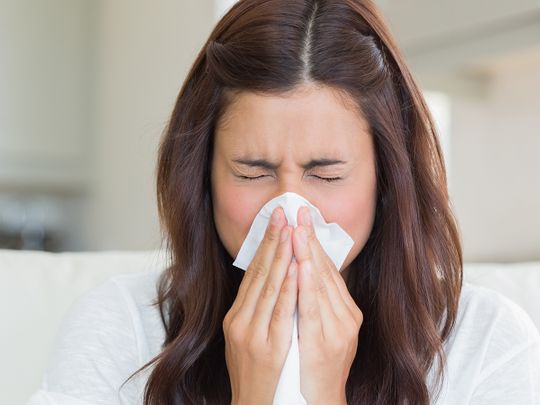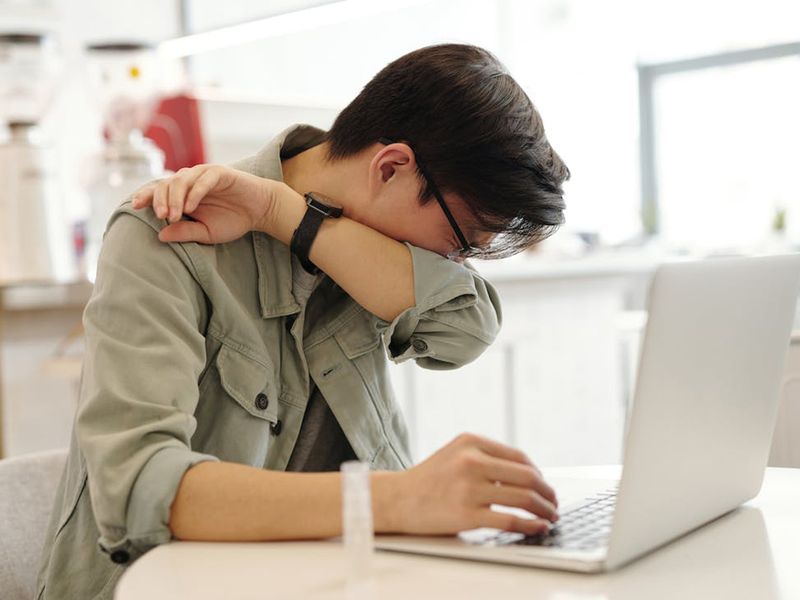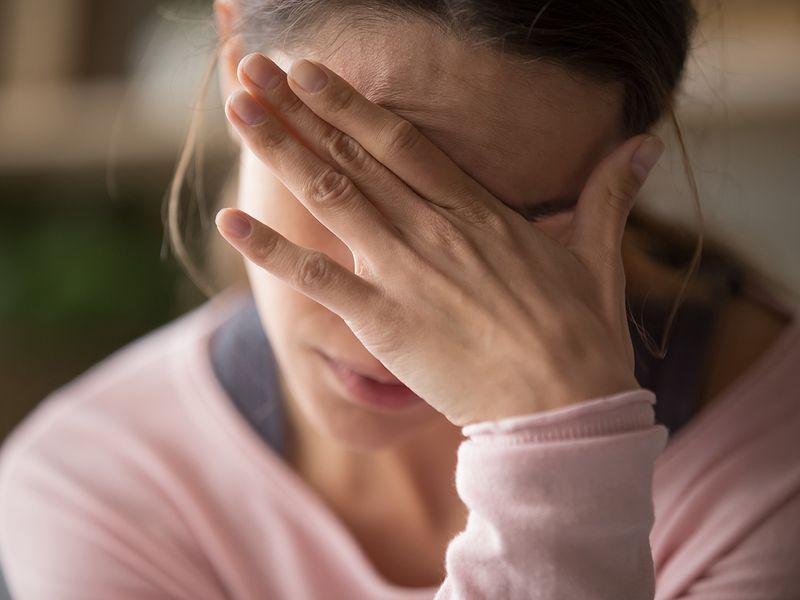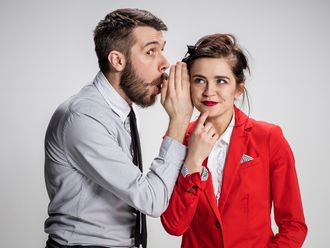
Fourteen sneezes in a row. That was my record.
My sneezing tales began during family trips to Kerala, at the age of six. Everyone had their own theory. My grandmother thought that I was somehow getting cold and would insist that I wear some warm clothes. The fans were switched off in my room. I was tucked into woollens and caps. That didn’t help. I was just sweating and still sneezing. That was more confusing for everyone. What sort of minx was this?
My mother, at first, believed that it was some kind of allergy. I was given different medicines, prescribed by family doctors. I would be alright for a few hours, and then return to sneezing the house down the next day. Most of my childhood memories in Kerala are scented by eucalyptus oil as my grandmother and mother would spray it on the pillows and a handkerchief. That didn’t help much either.
Yet, somehow, what began as compulsive sneezing due to allergens probably, settled into becoming a part of my personality; a running joke in our family and later my friend circles. It took different implications during my teenage years. I didn’t sneeze compulsively anymore, but still at rather crucial times. My mother played psychologist. She discovered that I started sneezing during arguments with her. She would tell my skeptical father emphatically, “It’s her self-defence mechanism, I know it is. She always sneezes when I tell her something she doesn’t like to hear.” Later, my father believed this theory too.
At the age of 32, I’m reluctantly convinced that my mother’s theory has an element of truth in it. I still have the those sneezing fits, perhaps not 14 in a row, but a fair seven nonetheless. Moreover, I still sneeze during arguments, unpleasant and anxiety-ridden situations.
It's a strange, but not entirely uncommon phenomenon. Experts have been left scratching their heads on the subject.
The kinds of sneezes
For starters, sneezing is a reflex. It normally protects the nose by preventing foreign objects from interfering with the passage of air. There are four types of sneezes, as written by Brent V. Stromberg, a physician, in the 1983 edition of the Human Nature Magazine, quoted by the New York Times from the same year. There was the allergic or irritative sneezing; sneezing controlled by the involuntary nervous system; psychological or emotional sneezing, and sneezing related to seizures. The primary cause is irritation from an allergy, and secondly from the common cold. Irritative sneezing can be aggravated by hairs in the nose, nasal polyps or a deviated septum. Some people are triggered by exposure to sunlight or other bright light, strong odours and sudden chills, all of which induce sneezing by stimulating the involuntary nervous system.
Then, he explained, ‘emotional sneezing’. “Emotional stimuli of the sneeze reflex include fear, which causes the nasal membranes to shrink. Frustration, apprehension, grief, anguish and resentment causes the membranes to swell,” he had written.

Sneezing under stress
Everyone reacts to stress differently; some break out in hives, others lose appetite and some have runny noses and bouts of sneezing.
Stress is your body’s reaction to situations. All the systems, digestive, cardiovascular and nervous system are impacted by it. “It is not uncommon for stress and anxiety to throw off the balance of your immune and nervous system, which impacts your allergies,” explains Saliha Afridi, a clinical psychologist from the Dubai-based LightHouse Arabia. “While stress does not cause allergy symptoms, it does release chemicals like adrenaline, cortisol and histamine, which make allergy symptoms worse. That includes sneezing, a runny nose and itchiness.”

It is not uncommon for stress and anxiety to throw off the balance of your immune and nervous system, which impacts your allergies. While stress does not cause allergy symptoms, it does release chemicals like adrenaline, cortisol and histamine, which make allergy symptoms worse. That includes sneezing, a runny nose and itchiness.
When the cortisol levels are high, the histamine increases under stress, explains Dubai-based clinical psychologist Sneha John from Camali Clinic Child and Adult Mental Health. “A lot of people take anti-histamine and allergy pills to calm down the hormones. Once the stress trigger is under control, the histamine production will reduce,” she adds. However, when stress escalates, it can lead to strong anxiety, as the person starts getting overwhelmed.
A coping mechanism
Strangely, sneezing is also a coping mechanism, explains John. Explaining compulsive sneezing she says, “It’s compulsive sneezing when the person forms a habit, when they’re stressed or they’re uncomfortable. In my sessions, I see this a lot. For instance, I’ve seen it with a client, who would come into my office and start sneezing. There’s nothing to make them sneeze. Yet, they have learned it as a response, that sneezing is a coping mechanism.”
It becomes a habit, when they’re in a situation that makes them uncomfortable. It reduces the moment they calm down. “Sneezing gives them a feeling of safety, sometimes. It’s not biological, it’s purely psychological,” she says. It can also be a way to get out of a certain situation or stall an unpleasant conversation. If you have a fit of sneezes, it puts everything on hold.

It’s compulsive sneezing when the person forms a habit, when they’re stressed or they’re uncomfortable. It gives them a feeling of safety. It's not biological; it's purely psychological.
Sneezing, to leverage advantage
The boy had sneezed uncontrollably for over six days, and no one knew why.
In 1995, the Associated Press had a strange story to tell. A 15-year-old patient was constantly sneezing, and a team of four doctors were unable to help him. The psychiatric emergency department attended the case and discovered the reason. A day prior to the sneezing, a classmate had threatened to kill the boy. The realisation that prolonged and apparently unstoppable sneezing could have a psychological cause confused many psychiatrists, as Laura Fochtmann, an assistant professor of psychiatry at the State University of New York told the outlet.
In the March-April issue of the journal Psychosomatics of the same year, she had reported that psychological factors were blamed for 31 of 38 cases of treatment-resistant sneezing reported in medical journals, including her own experience with the 15-year-old boy. “It is not clear how common this psychological sneezing is,” she had said at the time. “It is not discussed in psychiatric textbooks or the standard reference book of mental disorders, so psychiatrists probably are not aware of it. If people aren’t looking for it, they won’t find it.”
What she deduced was that psychological sneezing is brought on by a person's unconscious, which can create a physical symptom to leverage some advantage. For example, the boy’s sneezing kept the boy from going to school. Often, the problem can solve itself, or the patient is sent for psychotheraphy. However, she did emphasise that a doctor should rule out physical causes before a psychiatrist is consulted.

What is psychogenic or ‘intractable’ sneezing?
This is more of a rare entity, and is close to a disorder. The person has sudden, violent bouts, that are unusual in frequency and duration, according to a 2008 study in the Journal of Pakistan Psychiatric society. The person has an ‘aborted’ or pseudo-sneeze pattern, accompanied by nasal grunting.
There is no nasal discharge, normally. The person cannot respond to medications, but the symptoms subside with psychotherapy. The study cited a case study where an 11-year-old girl had continuous complaints of sneezing, without any nasal discharge. There was no history of allergies or bronchial asthma. She was sent to the psychiatric department for evaluation and it was gradually revealed that discord between her parents, as well as the pressure on her to perform in school, had led to the illness.
Both the parents were called in for counseling, separately as well as together. The parents were counseled about the nature of their child’s illness, its onset and aggravating factors. The child was also given exam related counseling to alleviate exam stress and was started on relevant medication for psychiatric treatment.
Keeping the stress levels under control
It’s all about how you manage your stress and overthinking.
“If you can recognise that your body is feeling tight, or you feel uneasy, you will look ways to solve it. That can at least help or prepare you to navigate the stressful situation,” says John. “Stress is also linked to overthinking. We need to keep that in check,” she adds. Just remind yourself that you need to approach the situation differently, and not let anxiety overwhelm you.
Of course, there are myriad ways to keep your stress levels and anxiety under control, starting with meditation and exercising that prevent your nervous system from going into overdrive. But first, examine your anxieties deeply and see what exactly you are reacting to. What is making you sneeze, and when? Why is this particular situation stressing you out? Sneezes are just the outcome and reflex; you need to see what your mental state is. Once you understand yourself better and can learn to calm yourself, this will impact your reflex actions.
(NOTE: This story was first published on May 25, 2023)










